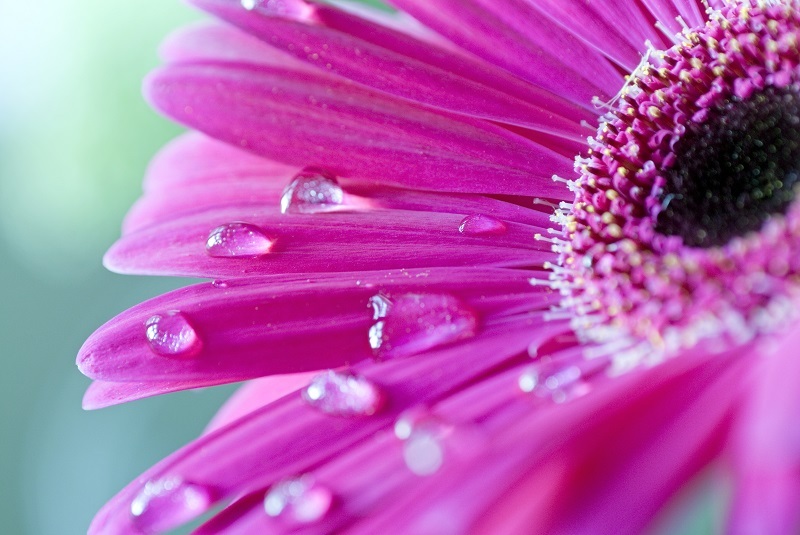Exploring 7 Intriguing Facts About Tulips You Didn't Learn in School
Posted on 27/09/2025
Exploring 7 Intriguing Facts About Tulips You Didn't Learn in School
Tulips are universally celebrated for their vibrant colors, graceful petals, and their symbolic place in gardens worldwide. However, beyond their undeniable beauty, these stunning blooms harbor a trove of secrets and stories that rarely find their way into the classroom. If you thought you knew all there was to know about tulips, prepare to be surprised. In this comprehensive article, we explore seven intriguing facts about tulips that will deepen your appreciation for these captivating flowers and their remarkable journey through human history.
1. Tulips Once Caused the World's First Economic Bubble
While you might associate tulips with picturesque Dutch fields today, in the 17th century, these flowers were at the heart of a feverish economic craze known as "Tulip Mania." This period is widely acknowledged as the first recorded **speculative market bubble** in world history.
- Tulip Mania reached its peak in the Netherlands around 1636-1637.
- The most sought-after tulip varieties were traded for extraordinary sums, sometimes equating to the price of a luxury Amsterdam canal house.
- When the bubble burst, many investors were left financially devastated.
This extraordinary episode underscores the deep cultural and economic impact tulips have had throughout history, far surpassing their role as mere garden decorations.
Why Did Tulips Become So Valuable?
The allure of rare tulip varieties, often characterized by their vividly striped petals caused by a virus, became a status symbol for the Dutch elite. Their exotic appearance fueled demand, and prices soared. The fascination with tulips during Tulip Mania remains a powerful cautionary tale about the dangers of speculation and human desire for rarity.

2. Tulips Are Not Originally From The Netherlands
Despite their strong association with the Netherlands, tulips are not Dutch natives. Their story begins thousands of kilometers away in the mountainous regions of Central Asia. Wild tulip species still bloom each spring across the foothills of Kazakhstan, Iran, Afghanistan, and China.
- Persian poets celebrated tulips as early as the 10th century.
- Ottoman sultans cultivated extensive tulip gardens in Istanbul, considering them a symbol of paradise on earth.
- The name "tulip" may derive from the Persian word for "turban," alluding to the flower's turban-like shape.
It wasn't until the 16th century that tulip bulbs reached Western Europe, sparking a horticultural revolution in the Netherlands and beyond.
How Did Tulips Travel to Europe?
The journey of tulips to Europe is credited largely to the Flemish botanist Carolus Clusius, who planted the first tulip bulbs in the botanical gardens of Leiden in the late 1500s. From there, the Netherlands would become forever entwined with this incredible flower.
3. Some Tulips Are Edible--But Caution is Advised
Few people know that tulip petals and bulbs can be edible under certain circumstances. Historically, during times of famine, such as the Dutch famine of World War II, people resorted to eating tulip bulbs to survive.
- Tulip petals can be used as an occasional garnish in salads or desserts.
- The taste varies from slightly sweet to bitter and even peppery, depending on the variety.
- Experts strongly advise caution, as some compounds in tulip bulbs are toxic and can cause stomach upset or worse.
Never consume tulip bulbs from commercial sources as they are often treated with chemicals. Always consult a knowledgeable forager or botanist before attempting to eat any part of a tulip.
4. Tulips Have a Language of Their Own
Flowers have been used to express emotions throughout human history, and tulips are no exception. The Victorians, in particular, were masters of floral symbolism, crafting intricate bouquets known as "tussie-mussies" to convey secret messages. In the language of flowers, or floriography:
- Red tulips: Declaration of love and passion.
- Yellow tulips: Once associated with hopeless love, but more recently symbolizing cheerfulness and friendship.
- Purple tulips: Royalty and admiration.
- White tulips: Purity, forgiveness, and respect.
Modern florists still use tulip colors to help customers communicate emotions and intentions, making each bouquet more personal and meaningful.
Underlining the Sentiment
Tulip arrangements are a gentle way to express feelings that might otherwise be hard to put into words. Next time you gift or receive tulips, consider the unwritten message behind their vibrant hues!
5. There Are Over 3,000 Varieties of Tulips
According to the Royal Horticultural Society, there are now over 3,000 registered tulip varieties cultivated by breeders worldwide. These blossoms are classified into 15 official groups or divisions, each defined by factors such as bloom shape, color, and timing.
- Darwin Hybrid Tulips: Known for their large, vibrant flowers and sturdy stems.
- Parrot Tulips: Ruffled petals in vivid, often multicolored hues.
- Lily-Flowered Tulips: Elegant pointed blooms with a striking resemblance to lilies.
- Fringed Tulips: Characterized by delicate, fringed petal edges.
- Wild Species Tulips: Smaller, often star-shaped blooms adapted to their natural environments.
This incredible diversity means there's a tulip for every garden style and personal preference, from classic red and yellow forms to striped, multicolored marvels that look almost painted by hand.
Gardener's Tip:
Planting different tulip varieties can extend your garden's blooming season from early spring into early summer. Mix and match for a constantly evolving display of color and form!
6. Tulips Play a Role in Environmental Science
Beyond their aesthetic charm, tulips are increasingly finding a place in scientific research. Tulips can be indicators of climatic conditions, soil health, and environmental changes.
- Climate change research: Scientists track the timing of tulip blooming to measure shifts in seasonal patterns.
- Soil testing: The health and color intensity of tulip blooms can reveal information about specific mineral deficiencies or toxicities in the soil.
- Pollinator observation: Studying tulip-pollinator interactions helps ecologists understand the health of local ecosystems.
Tulips pioneered some of the world's earliest "phenological records"--systematic observations of flowering times--which remain invaluable for climate studies to this day.
Did You Know?
In the Netherlands, the famous Keukenhof Gardens participates in citizen science projects where visitors help record blooming dates for various tulip species, aiding ongoing climate research.

7. Tulips Continue to Inspire Art, Culture, and Innovation
From ancient poetry to contemporary design, tulips have been a source of inspiration across cultures and centuries.
- The Ottoman Empire: Tulip motifs graced textiles, ceramics, and palatial architecture, so much so that the 18th-century "Tulip Era" is considered a golden age of art and prosperity.
- Dutch Masters: Painters like Rembrandt and Jan Brueghel the Elder immortalized tulips in still life masterpieces, highlighting their exotic beauty.
- Modern innovation: Dutch engineers have developed robotic "tulip-picking machines" to keep up with flower exports, blending horticulture and technology.
- Fashion and design: Tulip-shaped skirts, lamps, and even entire buildings draw inspiration from their elegant form.
Tulips are more than a springtime delight. They bridge the worlds of nature, history, art, and technology--an enduring reminder of how something as simple as a flower can shape civilizations and imagination alike.
Tulips: Enduring Wonder for Every Generation
These seven fascinating tulip facts demonstrate just how much more there is to discover beyond the flower's visual appeal. Their story is rich with history, science, symbolism, and innovation, proving how tulips have touched nearly every corner of human existence.
- From instigating economic bubbles to inspiring poets, painters, and scientists.
- From humble Central Asian beginnings to starring in global horticulture.
- From secret culinary uses to scientific breakthroughs.
So, whether you're an avid gardener, a history buff, a scientist, or simply a lover of beautiful blooms, tulips offer much to explore and appreciate. The next time you spot a swaying field or bouquet of tulips, remember these intriguing hidden stories--and perhaps share them with someone new!
Further Reading
Ready to explore more about tulips? Bookmark this article and share the surprising facts with fellow flower enthusiasts!
Latest Posts
Let Nature Reveal Your Perfect Flower Persona
Peony Flowers Decoded: What Each Colour Represents in Culture and Tradition
Perfect Flowers to Send for a Loved One's Birthday
Exploring 7 Intriguing Facts About Tulips You Didn't Learn in School
8 Hidden Facts About Sunflowers That Will Change How You See Them






